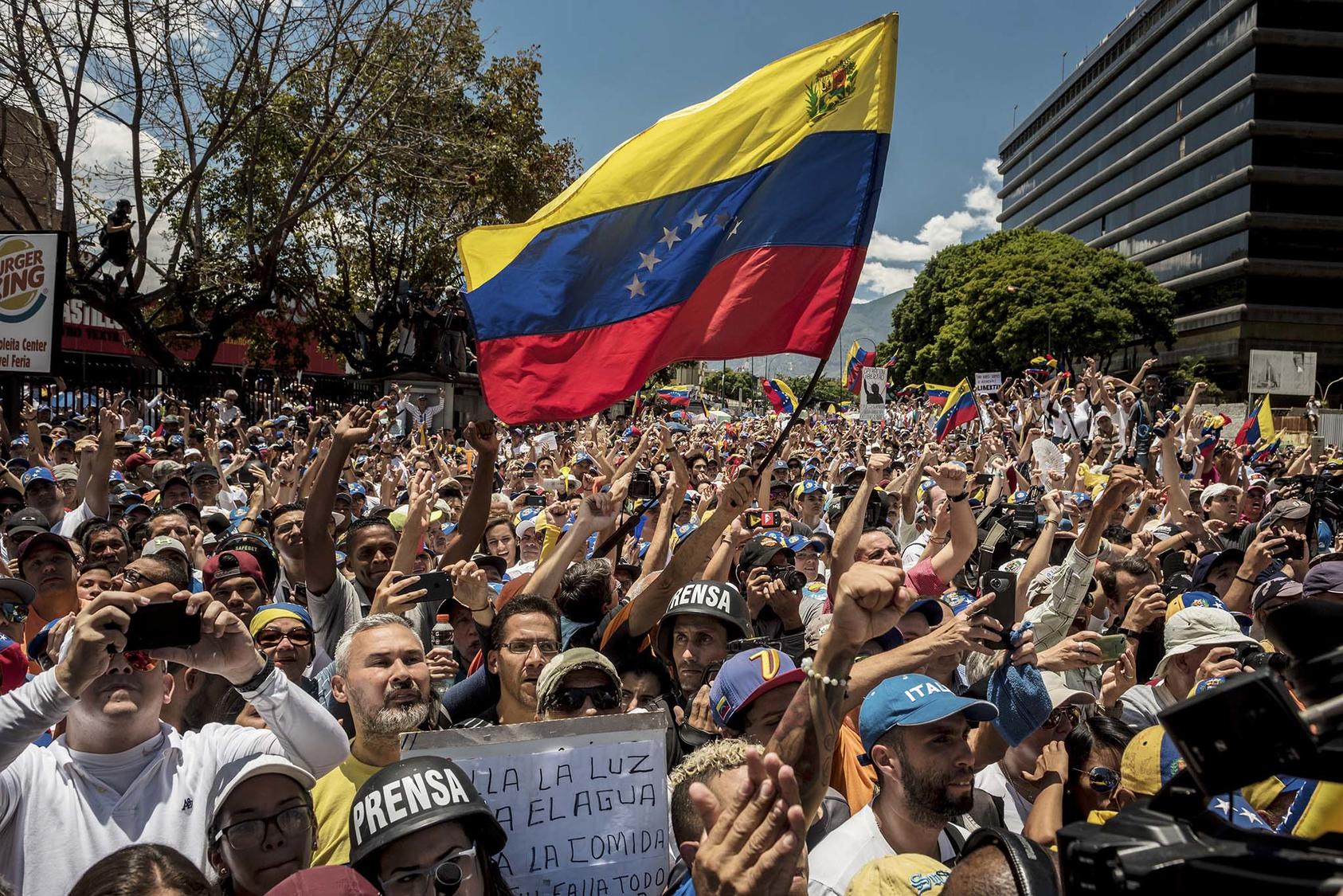Is there a Negotiated Path to Democratic Coexistence in Venezuela?
Here are 10 recommendations that could help to produce successful negotiations.
The scale of the Venezuela crisis is unique in recent history, with wartime indicators of hunger, refugees, and human rights abuses but conventional violent conflict largely absent. At the heart of the crisis is a 20-year struggle between the Chavista regime and the democratic opposition, characterized for most of these two decades by each side attempting to eliminate the other from the political map. Negotiations are seen by most outside observers as the only way the conflict will definitively end and there have been consistent efforts to bring the two sides to the table, most recently in Barbados and Oslo in 2019.

There is now talk of a new round of negotiations, although the parameters for those talks remain unsolidified. While there is some urgency in getting to the table given the depth of the crisis, there is greater urgency in ensuring the process is destined for success, not simply another failed attempt that invalidates the possibility of a peaceful negotiated end state.
According to recent polling, the majority of Venezuelans have lost faith in the traditional political process, with only 25 percent supporting their side’s leaders. (The data from this polling is not publicly available.) Frustration with politics, however, has created the space for the entry of more diverse and moderate civic actors, especially women. These fresh actors are reflective of the fact that Venezuelans have not lost faith in the future, with 52 percent remaining hopeful, even though 56 percent believe change will take time.
Significantly, the majority of Venezuelans continue to believe strongly in peaceful change — with 75 percent inclined to vote in the upcoming regional elections in the fall, and 54 percent wanting to see the two sides enter into negotiations. They are increasingly finding their voice as they demand of both sides a negotiated end to the crisis. This tendency could have even been helped by U.S. distancing, which has led these groups to take a more deliberate role in the country’s future.
Recommendations for Negotiations
There is a wide range of ways the crisis could come to a successful conclusion, but since all involve a fresh set of negotiations, analysts from USIP joined with colleagues from the Washington Office on Latin America (WOLA) to glean lessons based on interviews with all participants in the last round of negotiations that may be useful in setting the table for a future process. The analysis of this round, coupled with lessons from earlier rounds, yielded a series of 10 recommendations that the analysts believe could help to produce a successful negotiation leading to democratic coexistence in the future.
- The negotiating table should be re-structured to incorporate input from a broader set of actors with greater gender parity and inclusion of a clear space for consultation with civil society organizations, business and religious leaders.
- The Norwegian Foreign Ministry remains the best-regarded actor to facilitate future negotiations, although moving forward negotiations may require a more active involvement by facilitators to include proposing creative solutions to roadblocks and lining up incentives.
- Publishing the basic agenda of any future negotiations, and updating the public on their progress, can help instill trust in the process — but the talks themselves must be confidential.
- A long-term roadmap to re-institutionalization, rather than the turning point solution to Venezuela’s crisis that has been the focus on the recent past, may yield a better outcome. This could include a road-map style approach to democratic coexistence with incentives such as gradual sanctions relief attached to each milestone.
- Any solution will ultimately require free and fair elections, but also designing an outcome that allows a secure place for Chavismo in the country’s political landscape.
- The United States must commit to a negotiated solution to ensure success and will need to be materially involved at the appropriate time and with the right incentives.
- The United States should abandon its “all-or-nothing” approach to pressure and make clear that progress on agreed-upon benchmarks can lead to phased relief from sectoral sanctions — which can be snapped back in the event of non-compliance.
- U.S. policymakers should take care to avoid sending mixed messages as happened in past negotiation processes with debilitating results to the process.
- Supporters of negotiations should offer non-U.S. international actors a chance to play a supportive role in negotiations, as either guarantors or observers, while ensuring that international actors do not impose their interests on negotiations or send mixed messages.
- International stakeholders should work to lower the attractiveness of alternatives to credible negotiation — for the government as well as the opposition. International stakeholders can encourage progress in negotiations by making clear that no alternative to negotiation (normalization of relations with President Nicolás Maduro on one hand, and unconditional and indefinite recognition of opposition leader Juan Guaidó on the other) is viable.
The full report by WOLA’s Geoff Ramsey and David Smilde and USIP’s Keith Mines and Steve Hege can be found here. To watch a discussion on the report, with commentary by Venezuelan civic leaders and analysts Roberto Patino and Collette Capriles, click here.


